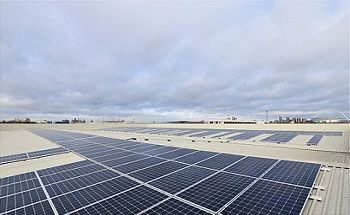 A new report by GlobalData claims that long term plans to reach specific goals will only be achieved if there is sufficient government support to promote battery electric vehicles (BEVs) at a global level.
A new report by GlobalData claims that long term plans to reach specific goals will only be achieved if there is sufficient government support to promote battery electric vehicles (BEVs) at a global level.
The new report claims that key markets are failing to meet planned deployment targets for BEVs as a result of lacking infrastructure, lack of consumer awareness, and delays in the delivery of equipment, which will continue to threaten future deployment plans unless rectified.
Governments in key countries including the US, the UK, China, France, Germany and Ireland have introduced long term financial incentive schemes, in the form of subsidies and tax rebates, to promote BEV deployment. A number of non-financial incentives have also been introduced. For instance, Norway allows BEVs access to bus lanes, free and unlimited parking at public places, and congestion charge exemptions. These initiatives are currently acting as drivers for the BEV market, and if continued will help to stimulate future growth.
However, national BEV aspirations have largely been crushed due to practical issues. For example, Ireland’s plan to deploy 6,000 BEVs by 2012 has been delayed due to suppliers failing to deliver BEV equipment on schedule.
Lengthy charging times represent another restraint felt by the BEV market. Insufficient infrastructure leaves drivers with range anxiety, as charging stations are few and far between and many of these are not advanced enough to charge a car without an overnight stop. Until more facilities capable of replenishing batteries within a very short time are introduced, charging-up and selecting routes based on charging stations will make long journeys in BEVs difficult.
The prohibitive cost of BEVs will also deter market growth, as government subsidies for vehicle purchase do not currently account for the high prices of new green technology. The global average price of a BEV is currently around $39,270 due to the cost of the battery, representing a high cost when compared to conventional internal combustion engine (ICE) vehicles. The price of the batteries used in BEVs is expected to decrease by 50% every four to five years, but the price of clean technology is expected to remain one of the major limitations to BEV market growth until the price of batteries significantly falls.



